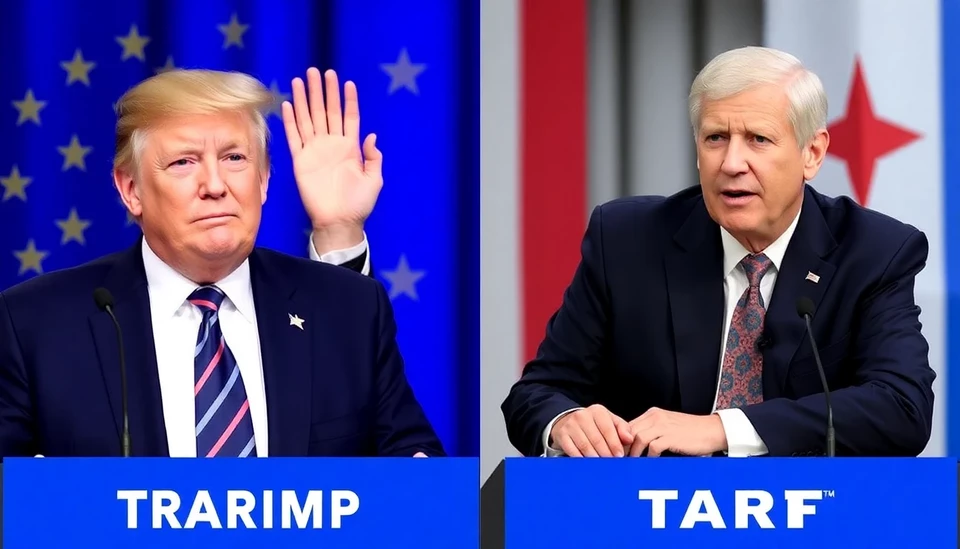
In a significant escalation of the ongoing trade tensions, former President Donald Trump has announced a new set of tariffs aimed at various goods, further complicating the economic landscape for businesses across the United States. This move has not only shocked industry leaders but has also thrown into jeopardy the ambitious “3-3-3 plan” put forth by investment strategist Kevin Bessent, which was designed to bolster the economy through strategic investments and job creation.
Trump's latest tariffs are seen as a direct response to ongoing international trade disputes, particularly with key trading partners like China and the European Union. The former president, rallying support from his base, has argued that these tariffs are essential for protecting American manufacturing jobs and reducing trade deficits that he claims are detrimental to the economy. However, critics argue that such measures could provoke retaliatory actions from affected countries, thereby exacerbating the trade war and negatively impacting economic growth.
Bessent's highly publicized “3-3-3 plan” aims to stimulate economic activity by advocating for three key initiatives: investing in technology, infrastructure development, and workforce training, each to be funded through a three-year budget projection. The unexpected imposition of tariffs threatens to derail these plans by increasing costs for manufacturers and stifling innovation. Bessent has expressed concern that heightened tariffs could lead to increased prices for consumers and ultimately hinder capital investment in the sectors he believes are crucial for the U.S. economy's long-term health.
Furthermore, experts suggest that in the wake of these tariffs, industries reliant on global supply chains could face significant disruptions. This sentiment was echoed by several business leaders who voiced their apprehensions during recent press conferences. The consensus is that while protecting domestic production is a noble goal, the overarching ramifications of these tariffs may lead to widespread economic instability.
In response to the unfolding scenario, many economists are calling for a reevaluation of the current trade policies, urging a more collaborative approach to international trade that would minimize the chances of retaliation and the dangers of escalating conflicts. With countries already straining against the backdrop of heightened tariffs, the fear is that the situation could quickly spiral out of control, further jeopardizing Bessent's vision for a robust economic future.
As businesses brace for the economic impact of Trump's tariffs, many are reconsidering their strategies and exploring new avenues to mitigate costs while maintaining competitiveness in an increasingly volatile global market. The coming weeks will be crucial in determining how businesses and policymakers adapt to these changes and whether Bessent's “3-3-3 plan” can withstand the pressures of a challenging economic environment.
In conclusion, with Trump's latest round of tariffs set to reshape the landscape for American businesses, the focus now shifts to the potential fallout and the strategies that both public and private sectors may need to adopt to foster resilience amid uncertainty. The interplay between political maneuvering and economic reality will likely dominate headlines in the coming months as stakeholders navigate this complex terrain.
#TrumpTariffs #TradeWar #Bessent333Plan #EconomicImpact #InvestmentStrategy #USeconomy #GlobalTrade
Author: Laura Mitchell




